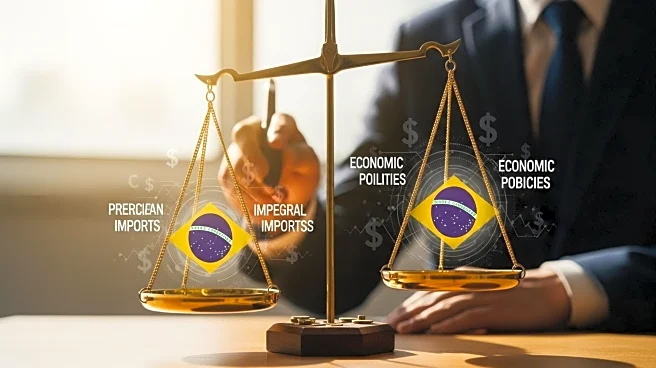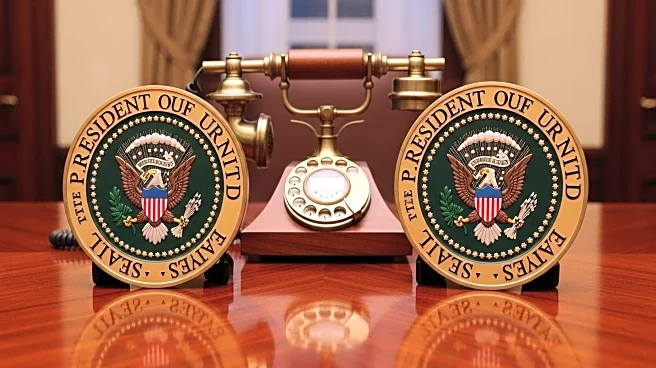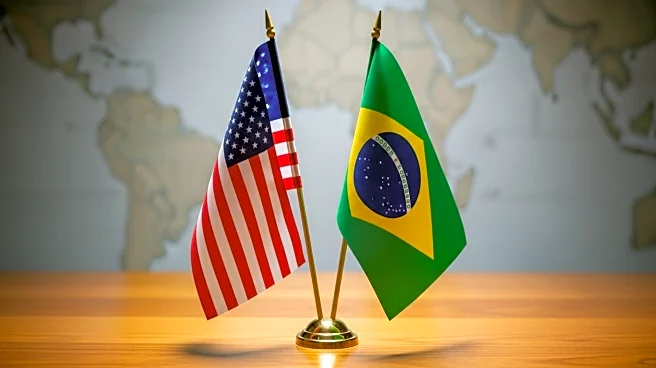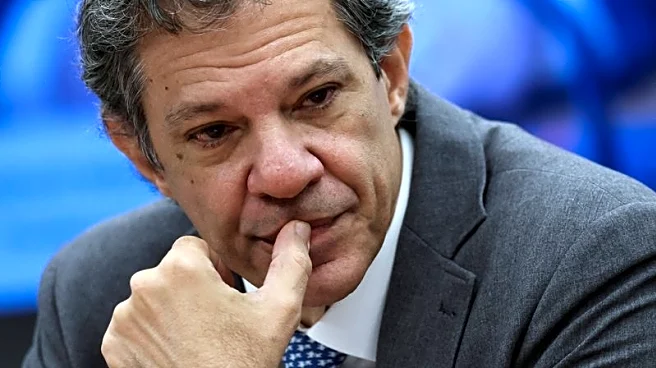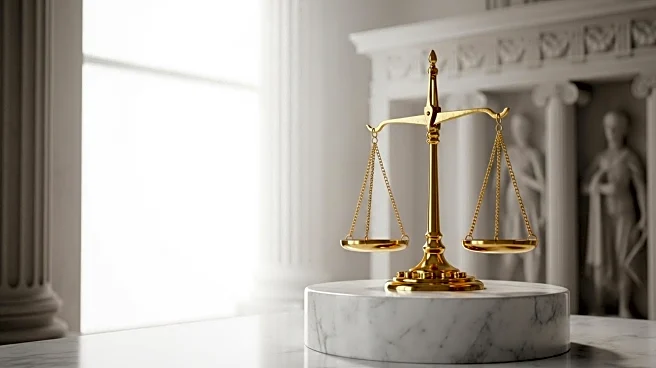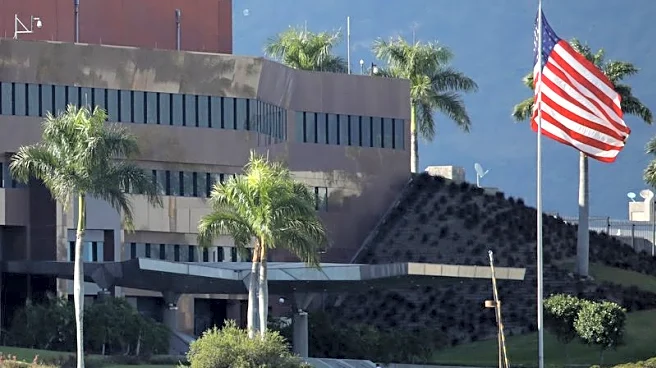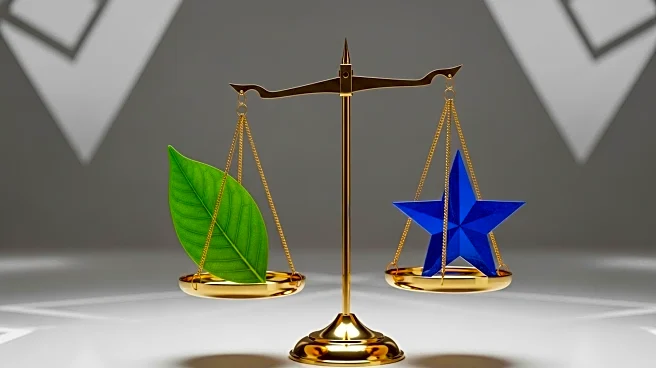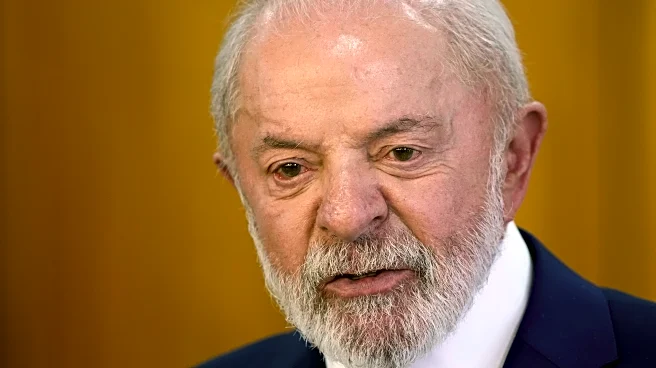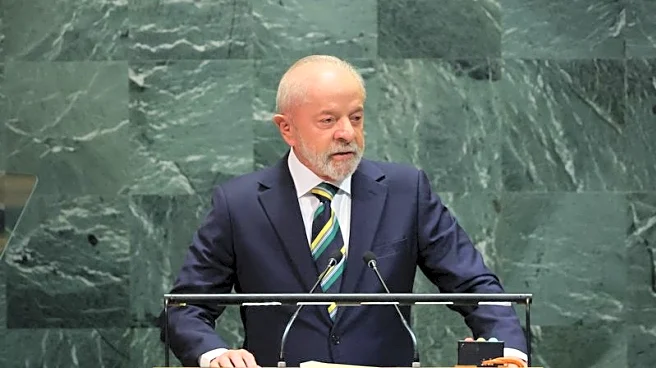What's Happening?
Brazilian President Luiz Inácio Lula da Silva has formally requested U.S. President Donald Trump to lift the 40% tariff imposed on Brazilian imports. This request was made during a phone conversation between the two leaders, which lasted for 30 minutes. Lula emphasized the importance of the trade relationship between Brazil and the U.S., noting that Brazil is one of the few G20 countries with which the U.S. maintains a trade surplus. The tariffs were initially imposed by the Trump administration in July, following a previous 10% tariff. The U.S. government justified these tariffs by citing Brazil's internal policies and the criminal prosecution of former President Jair Bolsonaro as an economic emergency. Lula also extended an invitation to President Trump to attend the upcoming climate summit in Belem and offered to visit Washington to further discuss trade relations.
Why It's Important?
The imposition of tariffs on Brazilian imports has significant implications for trade relations between the U.S. and Brazil. These tariffs could potentially affect the economic dynamics between the two countries, impacting industries reliant on Brazilian goods. The request to lift the tariffs highlights Brazil's efforts to strengthen economic ties with the U.S. and mitigate any adverse effects on its economy. If the tariffs are removed, it could lead to increased trade activity and economic benefits for both nations. However, maintaining the tariffs could strain diplomatic relations and affect Brazil's economic growth. The situation also underscores the broader geopolitical considerations, as Brazil seeks to navigate its international trade policies amidst internal political challenges.
What's Next?
Should President Trump agree to lift the tariffs, it could pave the way for enhanced trade relations and economic cooperation between the U.S. and Brazil. The potential removal of tariffs may lead to further negotiations and agreements that could benefit both countries economically. Additionally, Lula's invitation to President Trump to attend the climate summit in Belem suggests a willingness to engage in broader discussions on environmental and economic issues. The outcome of these discussions could influence future trade policies and diplomatic relations. Stakeholders, including businesses and political leaders, will likely monitor the situation closely to assess its impact on trade and economic strategies.
Beyond the Headlines
The request to lift tariffs also touches on the legal and political dimensions within Brazil, particularly concerning the prosecution of former President Jair Bolsonaro. The U.S. tariffs were partly justified by Brazil's handling of Bolsonaro's legal issues, which have broader implications for Brazil's political stability and international image. The situation highlights the intersection of trade policies with domestic political challenges, as Brazil navigates its international relations amidst internal controversies. The resolution of this tariff issue could influence Brazil's approach to international diplomacy and its efforts to maintain stable economic partnerships.

